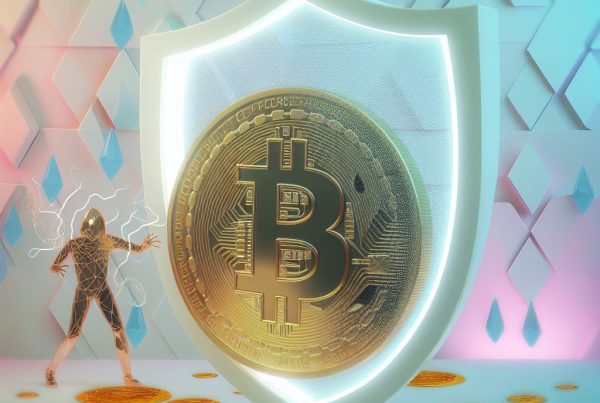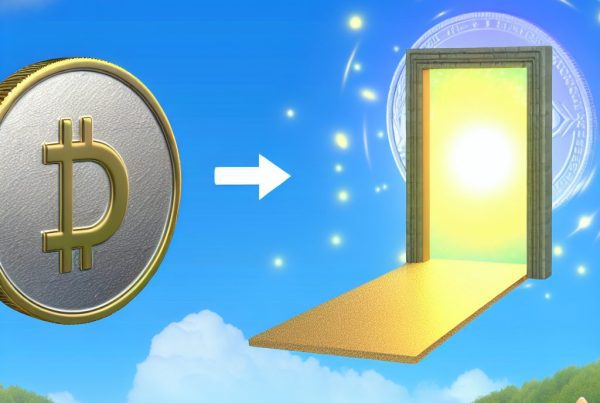What Is a Token Smart Contract?
The cryptocurrency industry has witnessed a remarkable evolution over the past decade, with various innovations reshaping how we perceive and interact with digital assets. Among these innovations, token smart contracts have emerged as a pivotal component, enabling the creation, management, and transfer of tokens on blockchain networks. This article delves into the intricacies of token smart contracts, their functionalities, and their significance in the broader cryptocurrency ecosystem.
Understanding Smart Contracts
Before diving into token smart contracts, it’s essential to grasp the concept of smart contracts themselves. A smart contract is a self-executing contract with the terms of the agreement directly written into code. These contracts run on blockchain networks, ensuring transparency, security, and immutability.
Smart contracts automate processes and eliminate the need for intermediaries, which can significantly reduce costs and increase efficiency. They are used in various applications, from financial services to supply chain management.
What Are Token Smart Contracts?
Token smart contracts are specialized smart contracts designed to create and manage tokens on a blockchain. These tokens can represent various assets, including cryptocurrencies, utility tokens, security tokens, and non-fungible tokens (NFTs). Token smart contracts define the rules and functionalities associated with these tokens, such as issuance, transfer, and redemption.
Token smart contracts are primarily built on platforms like Ethereum, Binance Smart Chain, and Solana, which support the creation of decentralized applications (dApps) and token standards.
Types of Tokens
Token smart contracts can create different types of tokens, each serving unique purposes:

- Utility Tokens: These tokens provide users with access to a product or service within a blockchain ecosystem. For example, Binance Coin (BNB) is a utility token that allows users to pay for trading fees on the Binance exchange.
- Security Tokens: These represent ownership in an asset, such as shares in a company or real estate. They are subject to regulatory compliance and provide investors with rights similar to traditional securities.
- Non-Fungible Tokens (NFTs): NFTs are unique digital assets that represent ownership of a specific item, artwork, or collectible. They have gained immense popularity in the art and gaming industries.
- Stablecoins: These are tokens pegged to a stable asset, such as the US dollar, to minimize price volatility. Examples include Tether (USDT) and USD Coin (USDC).
How Token Smart Contracts Work
Token smart contracts operate through a series of predefined rules and conditions coded into the blockchain. Here’s a breakdown of how they function:
1. Creation of Tokens
The first step in utilizing a token smart contract is the creation of tokens. Developers define the total supply, name, symbol, and other characteristics of the token within the smart contract. For instance, the ERC-20 standard on Ethereum allows developers to create fungible tokens with specific functionalities.
2. Issuance and Distribution
Once the token is created, the smart contract manages its issuance and distribution. This can include initial coin offerings (ICOs), airdrops, or direct sales. The smart contract ensures that tokens are distributed according to the rules set by the developers.
3. Transactions and Transfers
Token smart contracts facilitate transactions between users. When a user wants to transfer tokens, they initiate a transaction that the smart contract verifies. If the conditions are met (e.g., sufficient balance), the smart contract executes the transfer, updating the balances of the involved parties.
4. Governance and Upgrades
Some token smart contracts incorporate governance mechanisms, allowing token holders to vote on proposals related to the project. Additionally, developers can upgrade smart contracts to introduce new features or fix bugs, although this requires careful planning to maintain security and functionality.
Token Standards
Token smart contracts adhere to specific standards that define how tokens behave on a blockchain. The most notable standards include:
- ERC-20: The most widely used standard for creating fungible tokens on the Ethereum blockchain. It defines a set of rules for token transfers, balance inquiries, and approval mechanisms.
- ERC-721: This standard is used for creating non-fungible tokens (NFTs) on Ethereum. Each token is unique and can represent ownership of distinct assets.
- ERC-1155: A multi-token standard that allows for the creation of both fungible and non-fungible tokens within a single contract, optimizing gas fees and improving efficiency.
Benefits of Token Smart Contracts
Token smart contracts offer several advantages that contribute to their growing popularity in the cryptocurrency industry:
- Transparency: All transactions and rules are recorded on the blockchain, ensuring transparency and trust among users.
- Security: Smart contracts are immutable once deployed, making them resistant to tampering and fraud.
- Efficiency: Automated processes reduce the need for intermediaries, speeding up transactions and lowering costs.
- Programmability: Developers can create complex functionalities and interactions through code, enabling innovative use cases.
Challenges and Risks
Despite their advantages, token smart contracts also face challenges and risks:
- Code Vulnerabilities: Bugs or vulnerabilities in the smart contract code can lead to exploits and loss of funds. High-profile hacks, such as the DAO hack in 2016, highlight the importance of thorough testing and auditing.
- Regulatory Uncertainty: The regulatory landscape for tokens is still evolving, and projects may face legal challenges depending on their classification as securities or utility tokens.
- Market Volatility: The value of tokens can be highly volatile, posing risks for investors and users.
Real-World Applications of Token Smart Contracts
Token smart contracts have found applications across various industries, showcasing their versatility and potential:
1. Decentralized Finance (DeFi)
DeFi platforms leverage token smart contracts to create financial products and services without intermediaries. Users can lend, borrow, and trade assets using decentralized protocols. For example, Aave is a popular DeFi platform that allows users to earn interest on deposits and borrow assets through smart contracts.
2. Supply Chain Management
Token smart contracts can enhance transparency and traceability in supply chains. By tokenizing products, companies can track their movement from production to delivery. For instance, Walmart has implemented blockchain technology to improve food traceability, ensuring safety and quality.
3. Gaming and NFTs
The gaming industry has embraced token smart contracts through NFTs, allowing players to own in-game assets. Games like Axie Infinity enable players to buy, sell, and trade unique creatures as NFTs, creating a vibrant marketplace.
Future of Token Smart Contracts
The future of token smart contracts looks promising as the cryptocurrency industry continues to evolve. Here are some trends to watch:
- Interoperability: As multiple blockchains emerge, the need for interoperability between different networks will grow. Solutions like Polkadot aim to facilitate communication between blockchains, enhancing the functionality of token smart contracts.
- Regulatory Clarity: As governments establish clearer regulations for cryptocurrencies and tokens, projects will have a better understanding of compliance requirements, fostering innovation.
- Integration with Traditional Finance: The convergence of DeFi and traditional finance will lead to new financial products and services, expanding the use cases for token smart contracts.
FAQs
What is the difference between a token and a coin?
A coin typically refers to a digital currency that operates independently on its own blockchain (e.g., Bitcoin, Ethereum), while a token is built on an existing blockchain and can represent various assets or utilities.
Are token smart contracts secure?
While token smart contracts offer security through immutability, they can still be vulnerable to coding errors and exploits. It’s crucial for developers to conduct thorough audits and testing before deployment.
Can I create my own token smart contract?
Yes, developers can create their own token smart contracts using platforms like Ethereum. Various tools and frameworks, such as Truffle and OpenZeppelin, simplify the process of building and deploying smart contracts.
What are gas fees?
Gas fees are transaction fees paid to miners or validators for processing transactions on a blockchain. These fees can vary based on network congestion and the complexity of the transaction.
Conclusion
Token smart contracts are a fundamental aspect of the cryptocurrency ecosystem, enabling the creation and management of various digital assets. Their ability to automate processes, enhance transparency, and reduce costs has made them indispensable in industries ranging from finance to gaming. As the technology continues to evolve, token smart contracts will play a crucial role in shaping the future of digital assets.
For the latest updates on cryptocurrency news and price tracking, visit Bitrabo. Stay connected with me on social media: X, Instagram, and Threads.
Disclaimer: This article is for informational purposes only and does not constitute financial advice. Always conduct your own research before making investment decisions.
The Crypto Watchlist of the Week 🔎
Subscribe to receive expert-curated projects with real potential—plus trends, risks, and insights that matter. Get handpicked crypto projects, deep analysis & market updates delivered to you.


